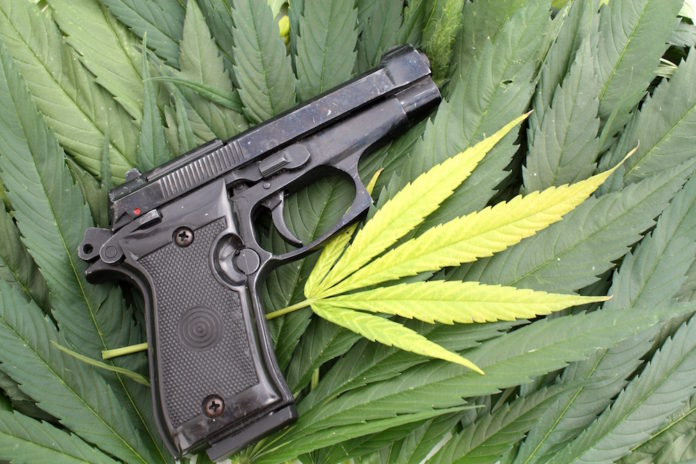Authorities in Hawaii want medical marijuana patients to “voluntarily surrender” their firearms because they are able to purchase marijuana.
The debate over gun control vs. the Second Amendment rights continues to be a hot-button issue. With what seems like a constant stream of mass shootings, the tense fights feels like it is perpetual.
But in a rare move by a U.S. governing body, Hawaii officials have decided to confiscate some firearms. But they will not be targeting gun owners who are mentally ill or individuals with guns that are too potent for hunting.
Hawaii authorities will target a familiar political punching bag, medical marijuana patients who seeking relief. Police have told patients that they have 30 days to “voluntarily surrender” their firearms.
Hawaii leaders claim they are following a federal statute that bans any medical marijuana patients from owning guns. In 2011 the Bureau of Alcohol, Tobacco, and Firearms (ATF) issued a letter stating that:
Any person who uses or is addicted to marijuana, regardless of whether his or her State has passed legislation authorizing marijuana use for medicinal purposes, is an unlawful user of or addicted to a controlled substance, and is prohibited by Federal law from possessing firearms and ammunition.
If Hawaii officials were so concerned over federal law then it seems strange that they would have approved Senate Bill 862 which legalized medical marijuana or allowed dispensaries to open over the summer. Why are they being selective over which federal laws they wish to adhere to?
It is difficult not to view this as unfairly targeting the rights of those who need medical marijuana. Based on the ATF’s language, does Hawaii see all medical marijuana patients as “addicted?” Would authorities use the same rationale for patients not using medical marijuana? Are individuals taking Nexium, or Crestor addicts?
Will gun advocates come out and defend the rights of patients in Hawaii as they do almost any other time a gun restriction measure is proposed? The National Rifle Association did not immediately respond to our request for comment.











